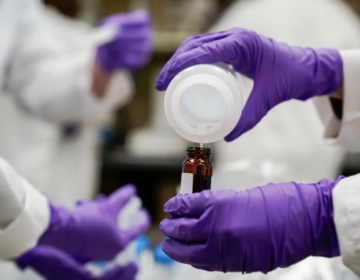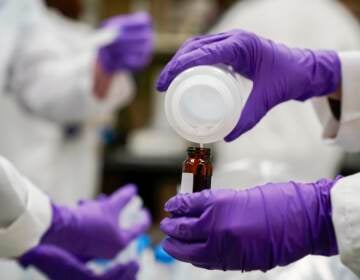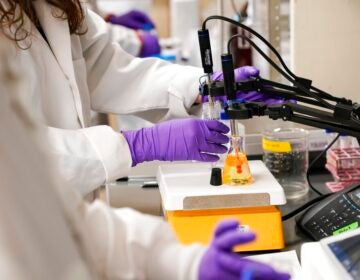Pa.’s acting attorney general leads coalition urging stronger PFAS regulations
More than a dozen states are calling on the EPA to take immediate action against PFAS.

(BigStock)
More than a dozen attorneys general are calling on the Environmental Protection Agency (EPA) to take immediate action to regulate PFAS — a toxic class of chemicals linked to serious health problems often found in household products like nonstick cookware.
The 17-member coalition includes Pennsylvania’s Acting Attorney General Michelle Henry and New Jersey’s Attorney General Matthew Platkin.
“Pennsylvanians have a constitutional right to clean air and pure water, and I am committed to defending that right,” Henry, who led the initiative, said in a statement.
In December, the EPA proposed adding PFAS to its list of “chemicals of special concern,” which include contaminants linked to serious health effects. When facilities and manufacturers release these chemicals into the environment, they must report it to the EPA under the Toxic Release Inventory Program (TRI). The database, which is made available to the public, helps the agency address pollution more effectively.
However, there are certain exemptions for PFAS that allow facilities to underreport these chemicals. During the first year of TRI reporting, there were 172 listed PFAS chemicals. However, only 43 of the chemicals were reported by fewer than 40 facilities, according to the coalition of attorneys general. Fewer than 90 reports of PFAS releases were made that year, but they say this is likely a significant undercount, given the widespread use of the chemicals.
Once PFAS is added to the chemicals of special concern list, they would be subject to the same reporting requirements as other chemicals, which would give the EPA a better understanding of releases.
In a letter, the attorneys general urged the EPA to finalize the proposal, arguing immediate action would protect communities sooner. The coalition also called for a standardized definition of PFAS, so that all types, including those that may be discovered in the future, be included in the list. More than a thousand PFAS chemicals have been manufactured in the U.S.
PFAS chemicals have tainted the water, air, and soil across the country for decades. The so-called “forever” chemicals are widely used in consumer products like nonstick cookware, flame-retardant fabrics, and some food packaging, as well as in firefighting foam used at military bases.
The contamination has had a significant impact on residents in areas such as Bucks and Montgomery counties in Pennsylvania, Monmouth County in New Jersey, as well as Dover and Blades, Delaware.
The numerous health problems, including some cancers, linked to PFAS have led to lawsuits against companies that make the products, such as DuPont and its successor companies, and 3M. The consequences of exposure are long-lasting — the compounds can stay in the human bloodstream for years.
“PFAS have been contaminating Pennsylvanians’ drinking water for years, yet the federal government had been slow to address this threat,” Henry said. “Therefore, we applaud the EPA for proposing this action now to determine who is manufacturing and using these chemicals, and we support other recent EPA proposals to accelerate cleanup of these chemicals. The EPA’s efforts will set the nation on a path toward safer regulation of PFAS.”
WHYY is your source for fact-based, in-depth journalism and information. As a nonprofit organization, we rely on financial support from readers like you. Please give today.







